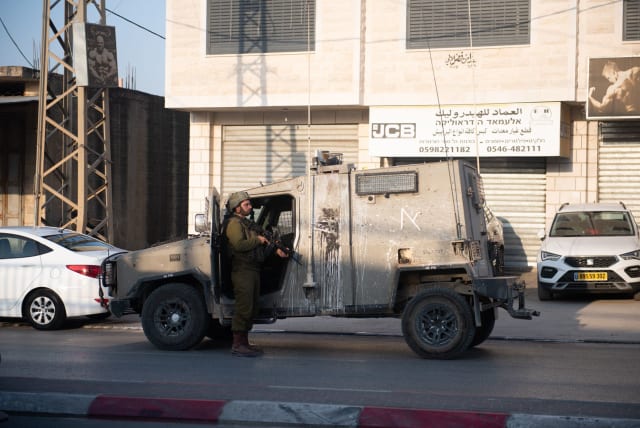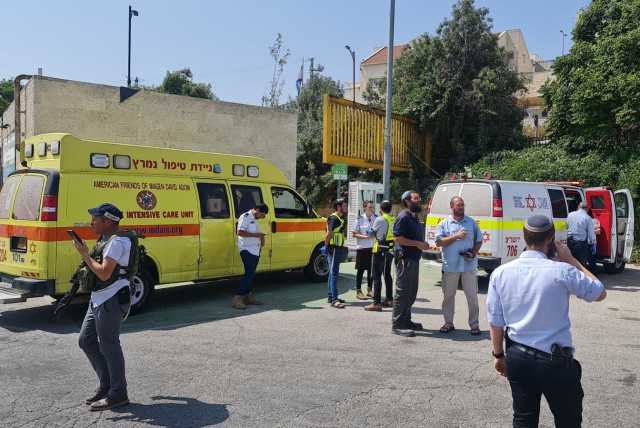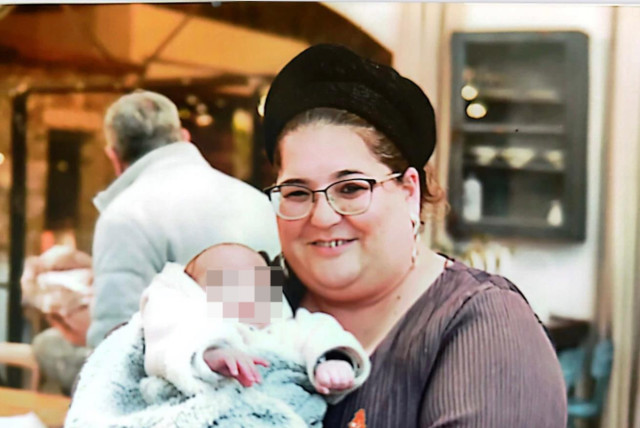Amid Israel's turmoil, security again takes center stage - analysis

Support for an assertive military response stems from the deteriorating security situation, which is becoming intolerable regardless of where one stands on the political map.
Anyone who thinks the toxicity of Israel’s current domestic turmoil will prevent the IDF from launching significant military campaigns should think again. Anyone who thinks such a campaign would create national unity and end the toxicity should also think again.
Consider the following: since the launch of the judicial reform plan in January — and the beginning of the anti-judicial reform protests quickly thereafter — the country has embarked on two larger-than-usual military campaigns: the first in Gaza in May and the second in Jenin in July.
The Gaza campaign — Operation Shield and Arrow — commenced after Palestinian Islamic Jihad fired hundreds of rockets at Israel following the death of a hunger-striking PIJ prisoner in Israeli custody. Despite some reserve pilots issuing threats just weeks before the campaign that they would no longer show up for reserve duty because of the judicial overhaul plan, the pilots reported for duty, and the air force operated with signature precision.
And then again in May, a couple of weeks after terrorists murdered four Israelis in Eli and IDF soldiers were wounded by a roadside bomb in Jenin when they went into the city on a routine mission to arrest terror suspects, the IDF launched Operation Home and Garden.
Notably, in both those cases the opposition leaders supported the military action, and there was little discussion about whether these actions were diversionary tactics by Prime Minister Benjamin Netanyahu to deflect attention from the judicial overhaul.
What's next in IDF military operations?
Following Monday’s terror attack near Hebron where a 42-year-old mother, Batsheva Nagari, was murdered in front of her daughter and 40-year-old Aryeh Gotlieb was seriously wounded, Israel may again be on the cusp of a larger-than-usual military operation.
This time as well, it is likely to garner widespread support, even from the heads of the opposition and among some of the protest movement leaders, because the continuous terror in Judea and Samaria, but not exclusively in Judea and Samaria, is something no government can tolerate.
Following Monday’s attack, Benny Gantz, the head of the National Unity Party, posted on X (formerly Twitter): “The thought of a little girl whose mother is murdered in front of her eyes is unimaginable. I offer my condolences to the victim's family, wish a speedy recovery to the wounded, and extend support to the security forces operating on all fronts.”
And Yesh Atid's head Yair Lapid posted this on Facebook: “The security forces will relentlessly pursue the murderers until they are apprehended. A strong and determined hand is needed in the face of terror.”
This support for an assertive military response stems from the deteriorating security situation, which is becoming intolerable regardless of where one stands on the political map or the contentious judicial overhaul debate.
Nigri became the fourth Israeli murdered by terrorists this month and the third this week. Since the beginning of the year, terror attacks have claimed 28 lives, including one person in Rehovot by an incoming rocket from Gaza.
Terrorists have killed 14 people this year in Judea and Samaria, 10 in Jerusalem, three in Tel Aviv, and one in Rehovot.
However, the death toll does not convey the entire story. Numerous others suffered severe injuries in attacks. For instance, an attack earlier this month in Ma’ale Adumim left six people wounded.
According to the Meir Amit Intelligence and Terrorism Information Center, from the start of the year until August 15 (excluding Monday’s attack and the killing of Shai Nigerker and his son Aviad Nir in Huwara on Saturday) there have been 109 critical terrorist attacks in Judea and Samaria. A critical terrorist attack is one defined as involving shooting, stabbing, a vehicular attack, the use of IEDs, or a combination of these. This does not include rock and petrol bomb-throwing incidents, which have numbered in the hundreds.
By comparison, in all of 2022, there were “only” 87 critical terror incidents in Judea and Samaria — and that was considered a bad year, with 24 people killed in attacks, the most Israelis killed by terrorists in one year since the “knife intifada” in 2015. With four more months left in 2023, there have been 25% more critical attacks than in all of 2022, and four more terrorist fatalities.
Why stress these numbers? Because it explains why the government might order the IDF now to take stricter measures to break this terror wave.
While these actions, as Gantz and Lapid’s social media posts indicated, are sure to enjoy support from the two largest opposition parties, others in Israel and abroad will accuse Netanyahu of trying to deflect public opinion.
Still others will say he is trying to artificially create a sense of unity — even, perhaps, a move toward a unity government — by manufacturing a national security emergency.
These figures matter because they reveal the gravity of the problem, proving that it is not something Netanyahu is fabricating for his political needs. The figures illustrate why the government and the IDF may feel compelled to act -- not because far-Right ministers Itamar Ben-Gvir and Bezalel Smotrich hold senior positions in the government, but rather because of a sense that the deteriorating security situation demands it.
As for the argument that Netanyahu could leverage a sizeable military operation or a security crisis to artificially manufacture unity — perhaps a call on his behalf for a national unity government to deal with the mounting security challenges — recent history does not bear this out.
After the Gaza operation in May and the IDF action in Jenin in July, the country rallied around the flag and the IDF. Nevertheless, the Saturday night following the Gaza campaign in May still saw tens of thousands of anti-judicial reform protestors in the streets, and the very day that the IDF went into Jenin in July, anti-judicial reform protestors demonstrated at Ben-Gurion Airport.
Three key takeaways emerge from all this: First, deep internal divisions won’t deter the government from initiating strong military action if it deems it necessary. Second, much of the opposition will rally around the IDF if the current sense of insecurity prevails. Third, the unity and solidarity accompanying a military campaign will be short-lived and will not usher in a softer, gentler political atmosphere and discourse the day after.
Jerusalem Post Store
`; document.getElementById("linkPremium").innerHTML = cont; var divWithLink = document.getElementById("premium-link"); if (divWithLink !== null && divWithLink !== 'undefined') { divWithLink.style.border = "solid 1px #cb0f3e"; divWithLink.style.textAlign = "center"; divWithLink.style.marginBottom = "15px"; divWithLink.style.marginTop = "15px"; divWithLink.style.width = "100%"; divWithLink.style.backgroundColor = "#122952"; divWithLink.style.color = "#ffffff"; divWithLink.style.lineHeight = "1.5"; } } (function (v, i) { });


